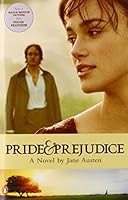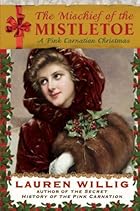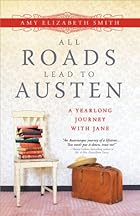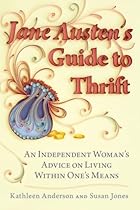Jane Austen's Guide to Thrift is a fun way to bring a little Austen magic into your modern-day life. Using examples from each of Austen's books, the authors give advice on everything from "Household Economy the Charlotte Lucas Way" to "Austen's Rules for Refusing, Accepting, and Giving Gifts." The advice would be useful to anyone setting out on their own for the first time, but I, of course, wanted to start with the really important things in life: what to read.
 Q: For readers who are new to Jane Austen and perhaps new to classic literature, which of her novels would you recommend they start with, and why?
Q: For readers who are new to Jane Austen and perhaps new to classic literature, which of her novels would you recommend they start with, and why?For readers new to Jane Austen, start with Pride and Prejudice! Austen pulls out all the stops with a bright, amusing heroine, Elizabeth Bennet, matching wits with a wide variety of frenemies: the boring yet annoying cousin who’s looking for a bride, any bride; the wicked womanizer who tries to charm practically every female he meets, in addition to the aristocratic snob who looks down on Elizabeth and her family, and yet can’t resist the love he feels for her. Elizabeth’s social networks bring her together with these Regency gentlemen again and again, sparring verbally on the dance floor, jousting with words in the shrubbery, and conversing with energy in the drawing room. In a world menaced by duplicitous suitors and shameless sycophants, Elizabeth Bennet proves a feisty advocate for virtue and courage, and she brings out the potential heroine in all of us readers.
Q: What modern-day book (or books) would you recommend to readers who have enjoyed Austen's novels?
 Susan: I love the Pink Carnation series by Lauren Willig, set in Regency England and focused
on espionage in the Napoleonic Wars. My special favorite is The Mischief of the Mistletoe, a
book in which Jane Austen features as a character. I love the characters and the plot, and most of
all, it frequently made me laugh out loud.
Susan: I love the Pink Carnation series by Lauren Willig, set in Regency England and focused
on espionage in the Napoleonic Wars. My special favorite is The Mischief of the Mistletoe, a
book in which Jane Austen features as a character. I love the characters and the plot, and most of
all, it frequently made me laugh out loud.
Kathleen: I love Jane Austen best, and will accept no substitutes, except possibly my own.
Q: Which of the pieces of advice in your book do you find hardest to follow?
Susan: The pieces of advice that I personally have trouble with relate to getting regular exercise. If reading took care of getting me into shape, I’d be all set. However, in spite of my good intentions, I frequently find myself turning those pages rather than making my daily walk, breathing fresh air and building my body chemistry.
Kathleen: When planning a vacation, I have a hard time spending money on hotels. I always instinctively ask myself, “Is there a friend or relative who would welcome a visit?”
 Q: Last year, Amy Smith wrote about her traveling Jane Austen book club across Latin America,
in All Roads Lead to Austen. Do you agree with Smith that Austen's work has universal appeal,
across cultures and socio-economic statuses?
Q: Last year, Amy Smith wrote about her traveling Jane Austen book club across Latin America,
in All Roads Lead to Austen. Do you agree with Smith that Austen's work has universal appeal,
across cultures and socio-economic statuses? In 2010, Vice Premier Wang Qishan of China revealed that he enjoyed reading Austen’s work for pleasure, and Sense and Sensibility was his favorite of all, with its precarious struggle for equilibrium between sensibility/passion and sense/reason. If that doesn’t prove a universal appeal, I’m not sure what would. Austen appeals across age divides, cultural differences, socio-economic groups, and genders because her works deal with basic issues: loyalty, love, honor, courage, and virtue among them. These are qualities that most of us admire and struggle to emulate in our lives, whoever and wherever we may be.
Thanks, Susan and Kathleen, for sharing your insight Austen, both in your book and in this interview.
Dr. Kathleen Anderson has published numerous essays in academic and arts journals, such as Persuasions: The Jane Austen Journal. She earned her B.A. from Harvard University and her M.A. and Ph.D. in English from the University of Iowa. Anderson has taught at the college level for over twenty years, and specializes in nineteenth-century British literature and Women Writers. She is currently a Professor of English at Palm Beach Atlantic University in Florida.
Dr. Susan Jones has published essays in academic journal and books on subjects ranging from Jane Austen;to the role of women. Her work has appeared in Persuasions: The Jane Austen Journal and her creative work has appeared in Quilt magazine and in The Santa Fe Review. Jones has taught at both the secondary and college level for over twenty-five years; she specializes in the areas of Medieval and Renaissance British literature, but has always had an interest in Jane Austen. She is a Professor of English at Palm Beach Atlantic University.

Interesting post! Enjoyable interview. Although I enjoy watching the films made using J.A.'s books, for me the archaic language gets in the way of a relaxing reading experience. Don't get me wrong- I read Shakespeare, George Eliot, Dickens, etc., and do not mind 'period' language. For some reason, the conversations in P & P slow me down. Have a great weekend, Ali!
ReplyDeleteThat's interesting that the language is so difficult for you, even compared to Shakespeare and so on. It's been years since I read Pride & Prejudice. I did read Jane Eyre more recently, and was actually surprised at how much I enjoyed it.
Delete